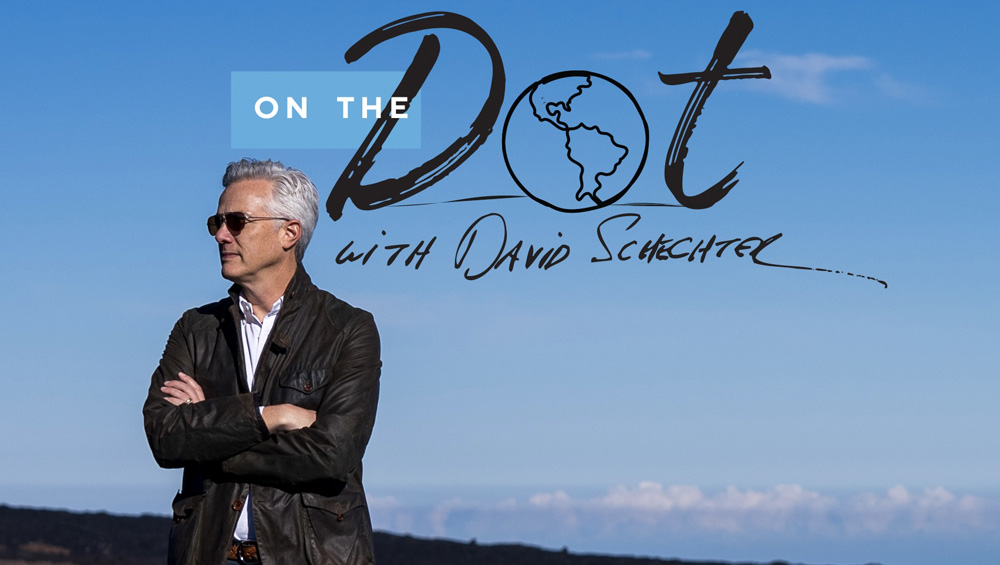
CBS Stations Debuts Climate Change Series ‘On The Dot With David Schechter’

Coinciding with CBS Stations’ continuing in-depth coverage of the severe weather impacting California and other areas of the country, the group is launching a news franchise, On the Dot with David Schechter, focused on the causes and impacts of climate change.
The in-depth stories come from CBS Stations national environmental correspondent David Schechter and senior photojournalist/producer Chance Horner, and a team of producers and data journalists from the CBS Local News Innovation Lab, which experiments with next-generation, data-driven storytelling.
“The objective of On the Dot with David Schechter is to make climate change more relevant and personal to viewers,” said Chad Cross, vice president of content development, CBS Stations. “We’ll make the science and data compelling and easier to understand.”
Featuring cinematic videography, “each longform story is uniquely produced to take the audience on a journey of discovery with Schechter as their guide. He virtually transports viewers to places where scientists are measuring and documenting climate change,” CBS Stations says.
Schechter says: “Most people know something about climate change, but may not fully get it. We want to provide the facts and show the science to grow our viewers’ knowledge and understanding. I think of it as giving them ‘climate confidence,’ and that’s the real value of these stories.”
The franchise is beginning with reporting about the fundamentals of climate change. The first special report, “Carbon Dioxide: The Invisible Problem,” will appear in local newscasts and streams of CBS Stations this week. The report is available to view here. It takes viewers to the top of a Hawaiian volcano where scientists have calculated the highest levels of atmospheric carbon pollution in four million years.
Upcoming stories will explore topics including rising sea level and the increasing extremes of storms, droughts and wildfires.
“Destructiveness of extreme weather is one of the biggest stories of our time. ‘On the Dot’ reflects the commitment of CBS Stations to talk about the causes as much as the effects of climate change,” says Adrienne Roark, president of CBS Stations.
“Earth is so massive that many of us don’t feel a real connection to our planet or understand how we’re affecting it,” Cross adds. “These stories go straight to the data and the experts who gather it, letting viewers see for themselves what’s happening to our atmosphere, oceans, and more.”
The franchise name, On the Dot, is inspired by the idea that, seen from the vastness of space, we all live together on a tiny, blue dot.
“It’s a planet with finite resources and we must use them wisely or risk losing them — a very real threat,” Schechter says. “The driving idea behind the name is that we’re all on this dot together.”
Schechter and Horner won a 2021 Alfred I. duPont-Columbia University Silver Baton for reporting about climate change.
Their franchise will also include environmental investigative stories, collaborations with local journalists across CBS Stations, as well as content for the company’s streaming platforms.
































Comments (1)
CoreyPoole says:
May 29, 2023 at 5:02 am
Climate change is a fact. The Earth’s average surface temperature has already increased by 1.1°C over the past 150 years. This was due to an increase in the concentration of greenhouse gases that are released when fuel is burned. This is already having a negative impact on the environment and humanity. Glaciers and ice sheets are melting, ocean levels are rising, hurricanes and floods are intensifying, and the seasons are shifting. Because of this, the flowering time of plants and animal biocycles are shifted. This, in turn, leads to a threat to food security, hunger, and poor health. This topic requires urgent and effective action on the part of all stakeholders: the government, the public, business, and the media. We studied this topic in college, and according to this essay on climate change, if this problem is ignored, the consequences can be catastrophic for humanity and life on the planet in general. I think we need to highlight this issue, inform the public, consider different topics and solutions, promote education, and raise awareness about climate issues.